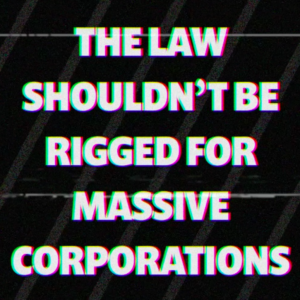Economic Justice
Arbitration Prevents Economic Justice
The Regulatory Review reported on a six-part series entitled Promoting Economic Justice. Remington A. Gregg wrote the article about arbitration and economic justice. Gregg served as counsel for civil justice and consumer rights at Public Citizen until March 2022.
Below are excerpts from the article.
Pre-dispute binding arbitration clauses and class action waivers, together known as forced arbitration clauses, are typically buried in “take-it-or-leave-it” agreements that waive individuals’ fundamental rights to seek accountability in court when they are hurt or when their rights are violated. These clauses deprive people of the opportunity to hold wrongdoers accountable, no matter how widespread or egregious the misconduct may be. The clauses also allow abuse, discrimination, and fraud to go unchecked.
The harms of forced arbitration are widely noted. Several reports indicate that 81 of the 100 largest U.S. companies use arbitration…and more than two-thirds of top selling products include a forced arbitration clause as a term of purchase.
The Economic Policy Institute has also found that consumers obtain relief regarding their claims in only 9 percent of disputes. However, when companies make claims or counterclaims, arbitrators grant them relief 93 percent of the time.
The opposite finding is true when considering how wronged consumers fare in a court of law. According to a CFPB study, “between 2008 and 2012, 422 consumer financial class action settlements garnered more than $2 billion in cash relief for consumers and more than $600 million in in-kind relief”—money that goes back into the hands of consumers. The study noted these numbers served as the “floor” because many settlements included additional relief, such as provisions prompting companies to change their behaviors.
Consumer Financial Protection Bureau
Curtailing forced arbitration clauses is not only important to return money back to cheated consumers, but as a tool to ensure that corporate wrongdoers do not keep ill-gotten gains—an important principle of economic justice.
The Consumer Financial Protection Bureau (CFPB) previously took action limiting the use of arbitration. The CFPB now can give people access to the justice system when harmed by corporate abuse. Doing so will drive economic justice.
Well said Remington! Forced arbitration is unfair. Preserve the right to jury. Protect consumers.

